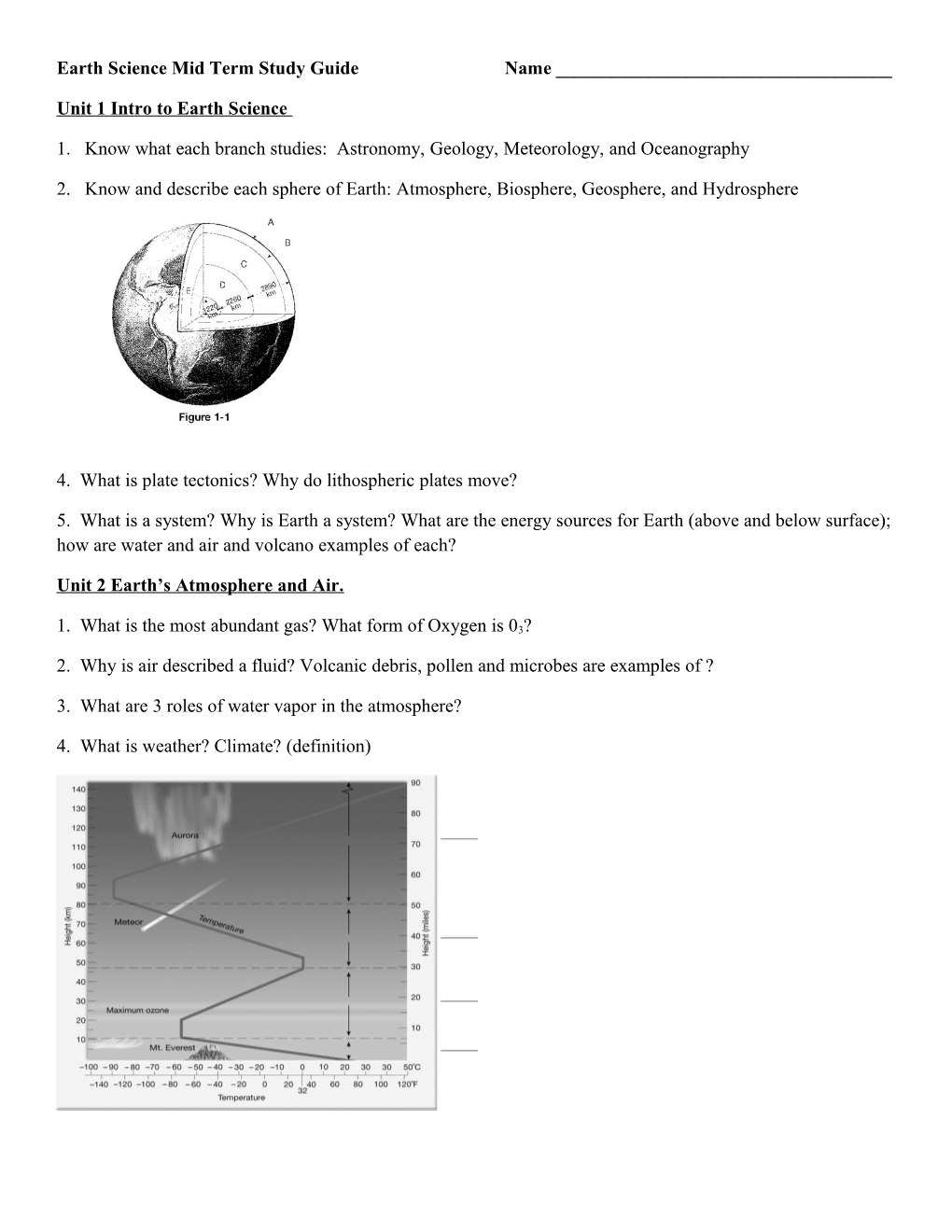Earth Science Mid Term Study GuideName ______
Unit 1 Intro to Earth Science
1. Know what each branch studies: Astronomy, Geology, Meteorology, and Oceanography
2. Know and describe each sphere of Earth: Atmosphere, Biosphere, Geosphere, and Hydrosphere
4. What is plate tectonics? Why do lithospheric plates move?
5. What is a system? Why is Earth a system? What are the energy sources for Earth (above and below surface); how are water and air and volcano examples of each?
Unit 2 Earth’s Atmosphere and Air.
1. What is the most abundant gas? What form of Oxygen is 03?
2. Why is air described a fluid? Volcanic debris, pollen and microbes are examples of ?
3. What are 3 roles of water vapor in the atmosphere?
4. What is weather? Climate? (definition)
Know characteristics of layers such as: jet flying, satellites, outerspace, coldest layer, where weather climate are established.
Seasons– the result of Earth’s tilt; revolution around the Sun.
Unit 3 Elements of Weather
2. Water: what makes it unique on Earth’s surface? What is sublimation why is freezer burn an example?
3. Define: relative humidity and dew point; when in the day is relative humidity highest?
5. What are the 2 precipitation processes? What 1 property determines the type of precipitation you will have?
6. What is air pressure? What is the air pressure associated with cold and warm air? How are differences in air pressure created? What is wind?
7. What does stable air mean? unstable?
8. What are the characteristics of warm air and cold air: in terms of stability and ability to hold water vapor? What does it mean to say air is saturated?
Unit 4 Air Masses, Fronts and Storms
1. What are the 2 properties that characterize an air mass? What do we call the global area an air mass orginates in?
2. What is mP; mT and mA and cP, cT and cA?
Fronts
1. What is a front?
A: B:
C: D:
Storms
1. Hurricanes: What are they? When are they most likely to occur in USA? What is the eye?
2. Tornadoes: How do they form? When do they most likely occur in USA? What is a vortex?
3. How do hurricanes compare to tornadoes?
4. Cyclone is the classical weather definition for both a ______and a ______making them all the same thing.
Unit 5 Climate Change
Carbon Cycle
2. What is a greenhouse gas? What are the 2 most common greenhouse gasses? How does burning fossil fuels effect greenhouse gasses?
3. What are some consequences of increased global warming?
4. What are ice sheet melting and ocean acidification?
5. What do scientists know are the facts about global warming?
65.
